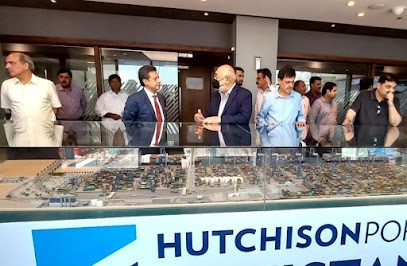By Abdul Qadir Qureshi (Pakistan News & Features Services)
“If the willingness is there, states can transform themselves through the use of digital technology, significantly reducing levels of poverty and corruption and simplifying government services that are otherwise bureaucratic and time consuming.”
This was the core message delivered in a special lecture by Toomas Hendrik Ilves, former president of Estonia (2006-2016). He is recognized for implementing bold and innovative policies that led the Baltic state to becoming a global leader in digital governance, especially in the areas of voting, banking, healthcare, transportation and education.
The event was hosted by Aga Khan University (AKU) Information and Communications Technology division, led by Chief Information Officer Shaukat Ali Khan, and attended by prominent CIOs from other leading institutions in Pakistan at the as special guests.
Following his presidency, the Estonian leader has actively worked to advance understanding of how technology can be used to improve lives and create a safer world. He co-chairs the Global Future Council on Blockchain Technology, which examines how blockchain technology can be used to enhance cybersecurity, and recently advised the World Health Organization on technological solutions to address the COVID-19 pandemic.
President Ilves, who was speaking remotely, shared his experiences spearheading Estonia’s digital transformation. He built on his familiarity with coding to explore innovative solutions to overcome a highly inefficient bureaucracy. Using the example of registering a birth in Estonia, he described a colleague’s frustration at having to manually apply to numerous individual departments to register the birth of a child, a process that took weeks and involved significant frustration.
Digitization meant that as soon as a child was born, the hospital would enter it into the system, after which it would instantaneously be shared with every other relevant department so records would automatically be updated, expediting the entire process with no involvement from the parent. This ethos to simplify the citizen experience has continued to the point that even to file taxes, citizens usually just verify forms readily filled by the government. Though this process can be quite cumbersome in most countries, it takes mere minutes today for most Estonians.
Moreover, the former Estonian president emphasized the IT talent existing in Pakistan, highlighting that there were many brilliant Pakistanis working in Estonia’s IT sector. He also suggested building proprietary government systems, and shared that many of Estonia’s systems are open source and can be freely shared for the benefit of other nations.
Answering questions from the audience as to how a nation with low GDP per capita and limited exposure to computers managed to digitize, President Ilves shared Estonia’s solution of creating computer centres for the public to come and utilize the machines with assistance, so they could engage with the new digital governance systems. He also indicated that the focus of digitization must be on the citizens, and what makes their lives easier, despite how tempting it is to initially pursue projects that make things easier for the government.
As people notice and feel the benefits of digitization, there is a ‘halo effect’ which leads to greater adoption of other related digital services. Extolling the virtues and necessity of digitization, the President highlighted that Estonia only 30 years ago was a newly independent country with high levels of poverty and corruption. Today, it has a reputation as a digital leader with the most unicorns (companies valued above US$1 billion) per capita in Europe and the sixth lowest corruption levels in the world, a startling achievement. It is a transformation journey upon which any country can embark if the willingness exists.
The AKU is engaged in its own transformation journey, as it implements a globally leading Electronic Health Records (EHR) system across its hospitals to enhance patient experience, care quality, and research capability. Shaukat Ali Khan thanked President Ilves for sharing his wisdom and experience with the audience, and expressed his gratitude to all the participants, as well as the University of Central Asia (UCA) and the CxO Global Forum, for helping make the event possible.







